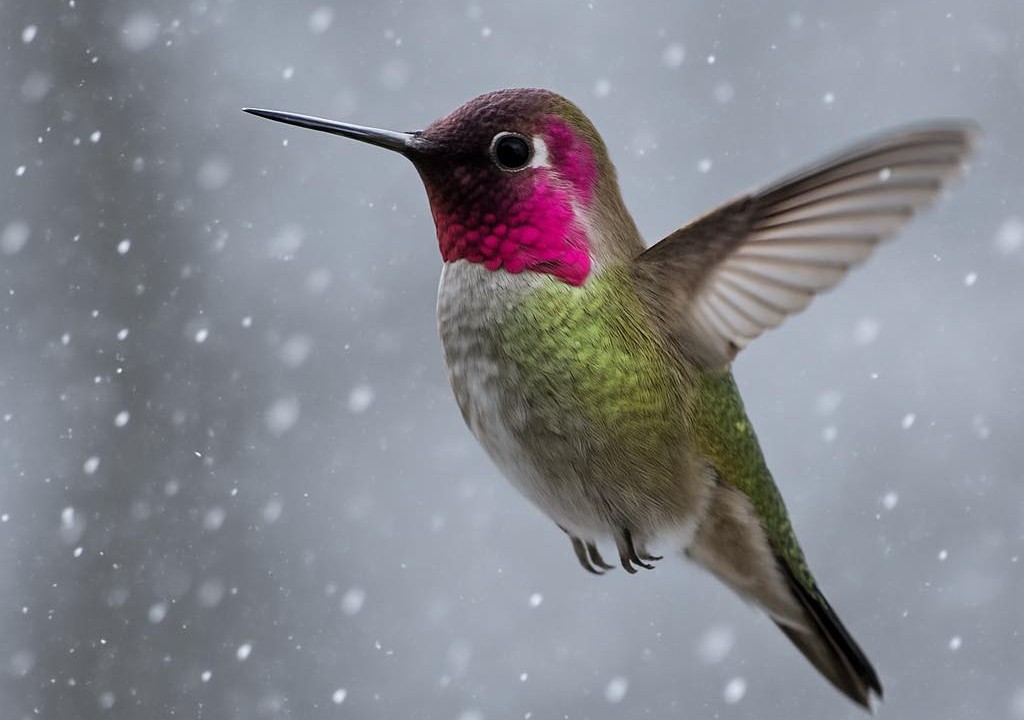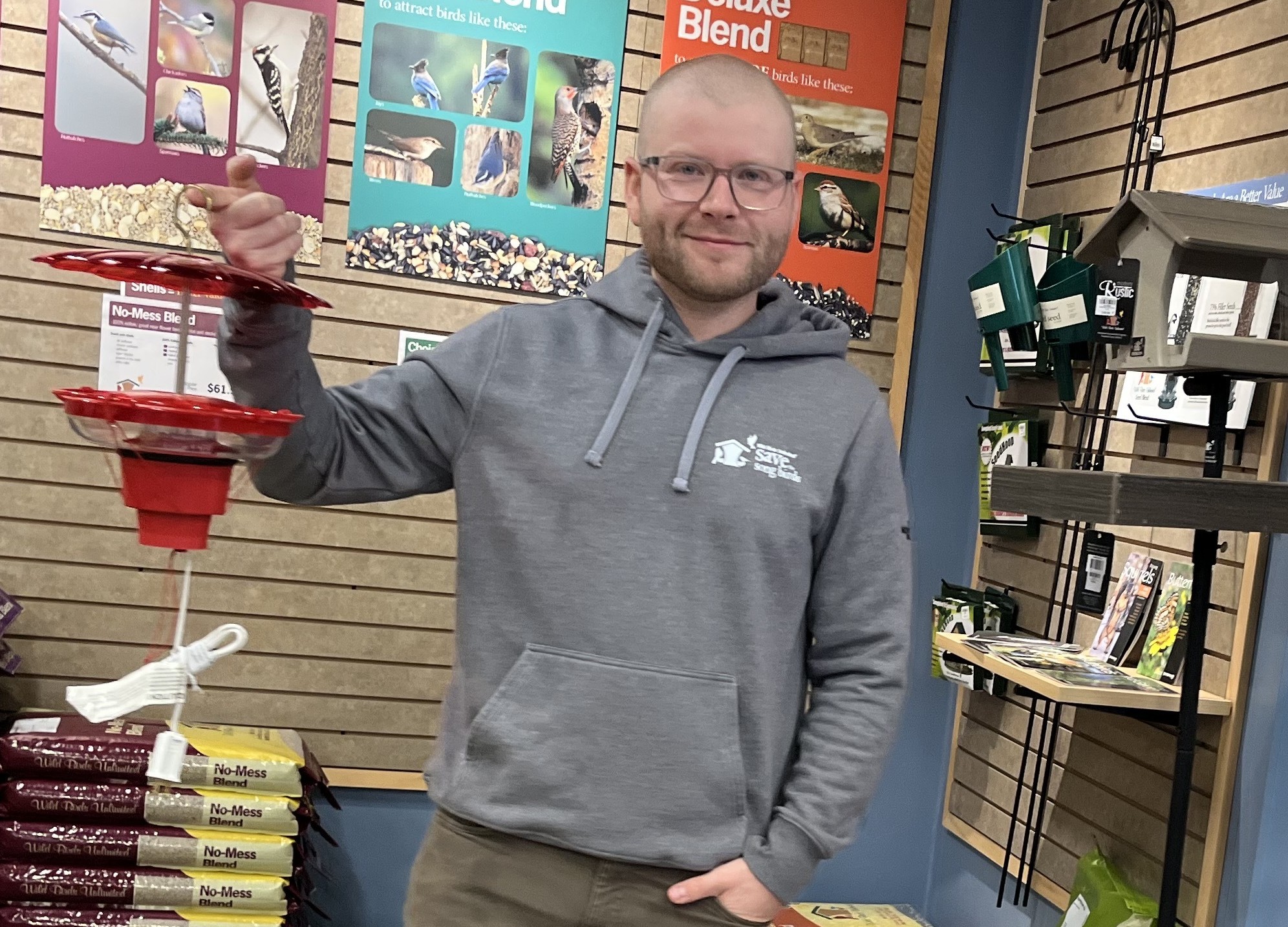Elevate your local knowledge
Sign up for the iNFOnews newsletter today!
Sign up for the iNFOnews newsletter today!
Selecting your primary region ensures you get the stories that matter to you first.

Kurtis Huston is fielding a higher than usual number of concerns from backyard birders spotting hummingbirds flying around as winter approaches.
He’s the owner of the Wild Birds Unlimited store in Kamloops where he provides expert advice and education on backyard bird feeding.
“It’s something that pops up every winter, people in a panic, not sure what to do when they still have a hummingbird visiting their feeders,” Huston said. “This winter more people are worrying about it, thinking something’s wrong, that the birds are supposed to be gone.”
Every winter a small but steady number of Anna’s hummingbirds stay in Kamloops and the Okanagan. The tiny birds thrive in urban areas and are known for the iridescent green and pink colours of their plumage, buzzing vocalizations and intricate courtship displays.
This species is non-migratory meaning they don’t have a strong instinct to migrate long distances like other hummingbird species do. Some populations will migrate short distances to find better feeding grounds, but most are permanent residents.

“Over the past three or four decades, Anna’s hummingbirds have been expanding their range from southern California up into the lower mainland,” Huston said. “In that time, they’ve also pushed their range into the Okanagan and other parts of the Interior. They’ve been observed as far as Alaska.”
If an Anna’s hummingbird is still sticking around in November, it will stay all winter. Huston said Anna’s hummingbirds were observed last winter at feeders at Pinantan Lake near Kamloops during -31 Celcius temperatures.
“It’s something that surprises people, but they’re not a traditional migratory bird like the rest of the common hummingbird species,” he said. “They’re wired internally to stay around in small regions for the entire year.”
Birds have to drink water every day no matter what the temperature is or they won’t survive. When the weather has frozen water sources, accessing water is difficult.
“The amount of time birds need to spend foraging in the day is high. In winter when the days are short and the nights are long, they need a lot of energy to survive the night,” Huston said. “The time spent searching for water could be the difference of whether they’ll collect enough food to make it.”
Backyard birders can help the tiny Anna’s survive the winter by keeping feeders out and thawed.
Feeders can be brought indoors at night during cold snaps and a warm one put out the next morning. Putting out a nectar ratio of three parts water to one part sugar helps provide calories and slow freezing. Some birders add heaters to feeders to prevent nectar from freezing.
One myth Huston hears from backyard birders is that removing feeders will trigger the birds to migrate, but migration is controlled by daylight, hormones and internal timing, so removing food doesn’t trigger migration, it removes resources from the handful of Anna’s that overwinter here.
“It has been proven there is nothing we can do to interrupt the natural instincts of wild birds,” Huston said. “Feeders don’t impact bird migration or how they learn to forage. They provide a critical resource during winter weather.”
News from © iNFOnews.ca, . All rights reserved.
This material may not be published, broadcast, rewritten or redistributed.

This site is protected by reCAPTCHA and the Google Privacy Policy and Terms of Service apply.
Want to share your thoughts, add context, or connect with others in your community?
You must be logged in to post a comment.
One response
Creditors want first dibs on possible $900,000 federal payment to BC ostrich farm | iNFOnews.ca
I do not believe the death of 69 Osteriches, Decrmber 2024, were tested for food poisoning, insecticide spray.poisoning, or chemical poisoning in their Water or Food. Why not? Poisoning of any kind may resemble a flu virus, this may be true for humans too and the Covid-19 virus. Poisoning does not shed to others,
unless you eat their poisoned meat or eggs.